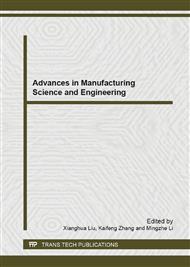p.2179
p.2183
p.2188
p.2192
p.2196
p.2202
p.2206
p.2210
p.2216
Breaking Deceleration Control of Urban Rail Vehicle Based on Smith Predictor
Abstract:
Stopping accuracy is a significant guarantee of the safety of the train's operation. It is mainly impacted by the performance of the electric-pneumatic braking system and the control mode of the braking system. In this paper, the braking deceleration control mode is adopted and a braking model of the urban rail vehicle reflecting the principle of the electric-pneumatic braking system is derived. Dynamic characteristics of the deceleration and dead time of the system are also considered in this model. Furthermore, the impact of the dead time is also analyzed in this work. Based on this nonminimum phase system, a conventional PID controller with the Smith predictor is proposed to control the deceleration of the vehicle. Simulation results verify that this method not only tracks the reference breaking deceleration but also effectively improves the stability of the braking system and the comfort level of the urban rail vehicle.
Info:
Periodical:
Pages:
2196-2201
Citation:
Online since:
June 2013
Authors:
Price:
Сopyright:
© 2013 Trans Tech Publications Ltd. All Rights Reserved
Share:
Citation:


